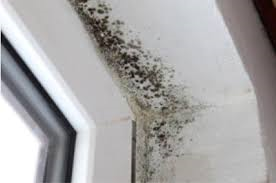Mould Prevention Tips
For those in the strata industry you know just how busy your job can be, especially when it comes to maintenance and repairs after storm season. One of the hardest repairs to deal with for any on-site manager, caretaker or strata manager can be mould, especially if you have no idea where it is coming from!
Mould in strata buildings can come from all sorts of issues and the responsibility for the repair of mould, as well as the ongoing maintenance to ensure mould doesn’t occur differs from building to building.
For high rise buildings, mould can often come from water leaks from the apartment above, condensation on walls and windows (as windows often can’t be opened), bad ventilation in a bathroom or laundry, leaks from the balcony or apartments that don’t see a lot of sun.
For complexes with townhouses and villas, mould issues occur with roof leaks or damage, blocked gutters, leaks in windows and doors, or insufficient ventilation. Again, mould can grow in apartments that don’t see a lot of sun or are constantly darkened with blinds or curtains.
In most situations, the question eventually comes about who is responsible for the mould. In a rental situation, the landlord is generally the responsible party unless it can be proven that the mould is a direct cause of an action of the tenant i.e not opening curtains or windows and not using exhaust fans or cleaning the air conditioning filters. A professional Mould Technician should be able to assist in finding the cause of the mould.
When it comes to other types of properties with mould growth, the responsibility generally boils down to who caused the issue or if it is coming from somewhere on common property. For example, if the shower taps in the apartment above you are leaking behind the tiles, it may well be the responsibility of the owner of that apartment to cover the repair costs. If it is a leak from a pipe on common property or shared roof gutters haven’t been cleaned, then this cost may be covered by Body Corporate.
It is always essential to remember that the strata set up of buildings are different – what may be covered in the building next door under Body Corporate is possibly not covered in your building. If you need advice on who has the responsibility to pay the cost of mould remediation, it is always best to look either to the Strata Manager (for caretakers and on-site managers) or to the building plan and relevant legislation for Strata Managers.
For on-site Managers, Caretakers and Strata Managers there are some pretty simple, yet essential tips to help reduce the possibility of mould appearing.
- Have roof gutters cleaned regularly. Depending on your surrounds this might be one to two times a year or it might be more.
- Make sure any water leaks are dealt with promptly.
- Remind occupiers to ensure they are using ventilation within the unit in the way of exhaust fans, rangehoods and air conditioners.
- When getting pest control done, have the apartment’s moisture levels checked to detect anything out of the ordinary.
- In townhouses and villas, ensure that there is sufficient drainage for water away from the property.
- Ensure there are no leaks in windows and doors, and if reported, deal with them directly.
Don’t let mould growth drag on – the longer it is left, the worse it gets. Mould is best dealt with as soon as it is found.
If you need assistance in assessing damage from mould or finding the cause of mould, consult a professional Mould Removal Technician.
This article was contributed by Gerard Murtagh of MouldMen.


Leave a Reply
Good article!
Important.
Here is a lulu of a story:
I was the manager of a high rise building that had recently been constructed.
There was a mystery of serious mould in several units.
There was talk of litigation against the developers and consideration about reapplying membranes.
The culprit however was spoors in the ventilation panels from the garbage hopper room in the basement to the extraction shaft on the southern side of the building.
The point being mould can be a mystery and needs a professional approach.
It is also some thing managers need to check due to WHS responsibility
Hi all,
Noticed re Mould, it is suggested that when the pest control is done, that they also measure the moisture level of the apartment. Water leakage can be detected that way. Saves money and repairs. Perhaps we could investigate this procedure.
In Bayview Gardens we are lucky in our service rooms that we have automatic fan extractions (mould rarely there), but the above may help us in detecting leaks.